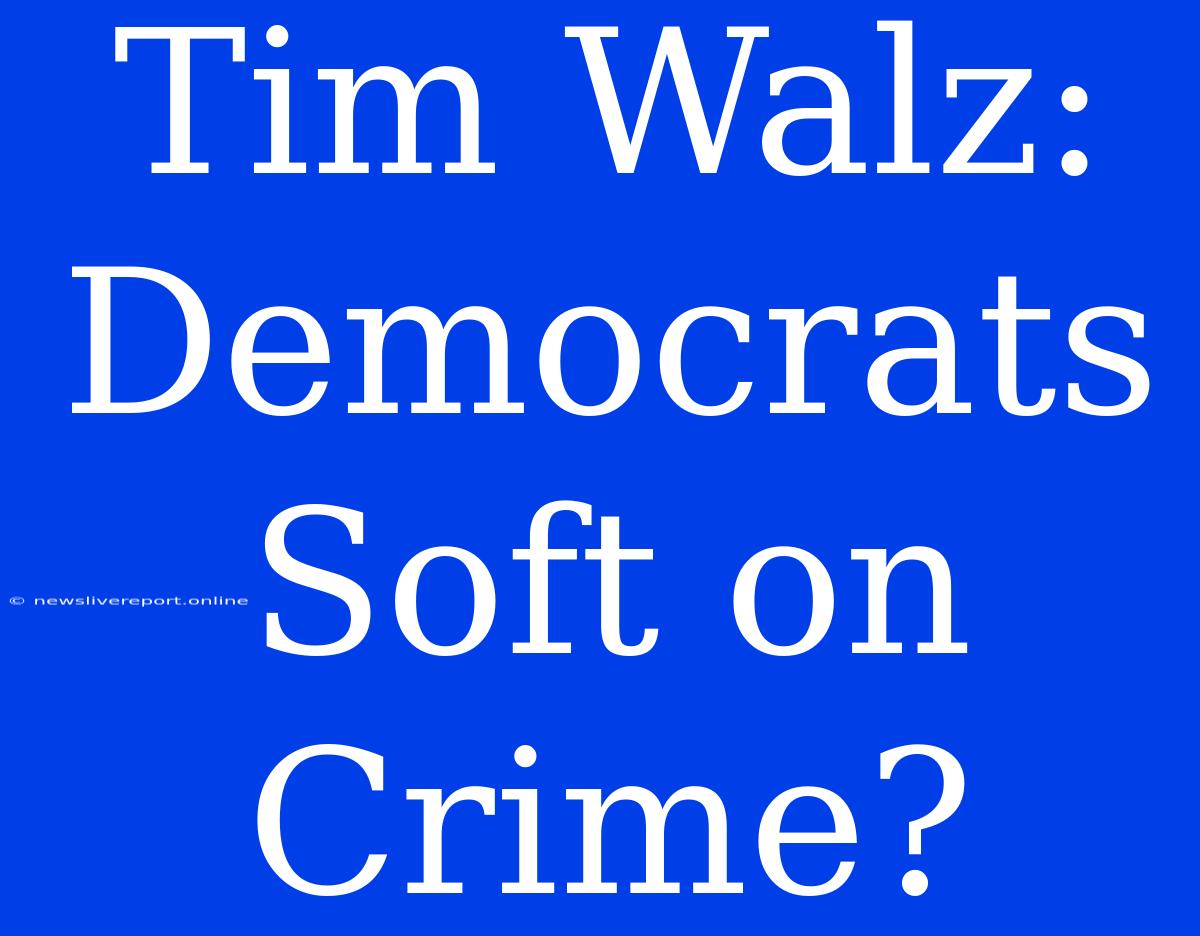Walz Faces "Soft on Crime" Accusations as GOP Attacks on Public Safety Dominate Minnesota Elections
Saint Paul, MN - Minnesota Governor Tim Walz is facing mounting pressure from Republicans who are accusing him and the Democratic party of being "soft on crime," a tactic gaining traction in the upcoming midterm elections. This comes as crime rates in the state, particularly in Minneapolis, have seen an increase, providing ammunition for GOP candidates seeking to paint Democrats as weak on public safety.
"Soft on Crime" Rhetoric Takes Center Stage
The "soft on crime" argument has become a dominant theme in the 2022 election cycle, echoing similar tactics used nationally by Republicans. This message is particularly prominent in the race for Governor, where Republican challenger Scott Jensen is making public safety a key issue. Jensen has pointed to the rise in crime as evidence of Democrats' failure to address the issue, accusing them of prioritizing criminals over law-abiding citizens.
Walz Responds to Criticisms, Highlights Democratic Record
Governor Walz has countered these accusations, highlighting his administration's efforts to address crime. He points to initiatives like increased funding for police, investments in community programs, and support for mental health services as evidence of his commitment to public safety. Walz also emphasizes that crime is a complex issue that requires comprehensive solutions, not just harsh penalties.
Public Safety Remains a Major Concern for Voters
While the "soft on crime" narrative is being amplified by Republicans, public safety is a legitimate concern for many Minnesotan voters. The recent rise in violent crime, particularly in Minneapolis, has undoubtedly increased anxiety and contributed to the perception that the issue is not being adequately addressed.
The Debate's Impact on Elections
The debate over crime and public safety is likely to have a significant impact on the outcome of the upcoming election. Republicans are hoping to capitalize on voter anxiety by positioning themselves as the party that can best address the issue. Democrats, meanwhile, will need to convince voters that their approach, which emphasizes both law enforcement and social programs, is the most effective way to reduce crime.
The Future of Public Safety Policy
The upcoming election will provide a clear indication of how Minnesota voters prioritize public safety and what kind of policies they support. This debate is likely to continue beyond the election, as both parties grapple with how to effectively address the complex issue of crime in a way that satisfies a diverse electorate.

